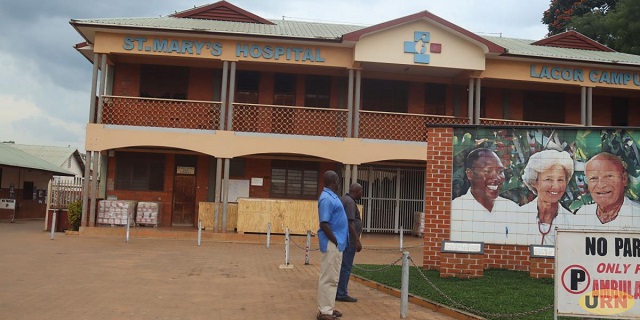
Gulu, Uganda | THE INDEPENDENT | St. Mary’s Hospital Lacor in Gulu City is considering recycling waste generated at the facility as a cost-cutting measure in response to growing financial constraints that are threatening its ability to sustain operations. Lacor Hospital, one of the largest private, not-for-profit health facilities in Northern Uganda, is increasingly struggling to meet operational expenses, including waste management and staff salaries, according to hospital officials.
Dr Dominique Atim Corti, the President of Corti Foundation, revealed at a recently concluded annual general meeting of the hospital that the facility loses up to 2 million shillings monthly in dumping waste. Dr Corti said that such an amount of money is saved through the recycling initiative the hospital intends to start would save the hospital annually 24 million shillings in waste expenses and support the salary of up to 250 employees.
“Let us say that at least if we could avoid to send at the Gulu dump half of this rubbish, if we go forward to treating the domestic waste inside the hospital, and avoid having to send it there, the Gulu dump benefits, but the hospital benefits very much,” she said. Adding “If you calculate that these 2 million per month, if you reduce them by half, at the end of the year, we’re talking about 250 staff salaries equivalent,”.
According to the Hospital statistics, the hospital generates a total of 300 kgs of waste every day, with food waste accounting for 67.7 percent and green waste (Dry leaves) at 3.1 percent. Dr Corti noted that the proposal a plan was drafted last year by the Hospital Technical Department through a PHD student on how waste generated from within that can be used as compost manure, is separated from others.
She, however, expressed frustration that despite the plans drafted, the hospital staff who were initially supposed to help in the separation of the waste didn’t heed the call, adding that the failure is further increasing expenses. “So…hospital staff living inside this compound, you are throwing away 250 salaries equivalent, or even more, per year, because you refuse to separate and segregate the waste. This is a way you could really help, because this is money less that we’re throwing away instead of putting it into salaries,” said Dr Corti.
St Mary’s hospital Lacor largely relies on donor funding, which accounts for 15.5 billion shillings’ budget for running the facility. Meanwhile, the government only allocates 58 million shillings quarterly under the Primary Health Care budget (PHC). Dr Corti wasn’t, however, specific on whether, once the recycling waste plant begins operating, the compost produced will be sold to commercial farmers or used within the hospital farm.
To further reduce expenditure amidst funding shortfall, the hospital recently introduced a new administrative software, which has significantly saved about 600 million shillings in just food expenditures alone. Dr Emmanuel Ochola, the Scientific Director at the hospital, also revealed that in a move aimed at creating a safe space at the hospital and ensuring limited patient exposure to cancer-causing equipment, the hospital removed all asbestos materials.
Dr Ochola also noted that by September this year, all cobalt materials will be removed from the facility. Annually, according to the hospital data, Lacor hospital, on a daily basis, has an estimated population of 5,000 people who produce a massive quantity of various wastes, with food wastes accounting for up to 67.7 percent of all the wastes generated.
****
URN
 The Independent Uganda: You get the Truth we Pay the Price
The Independent Uganda: You get the Truth we Pay the Price



